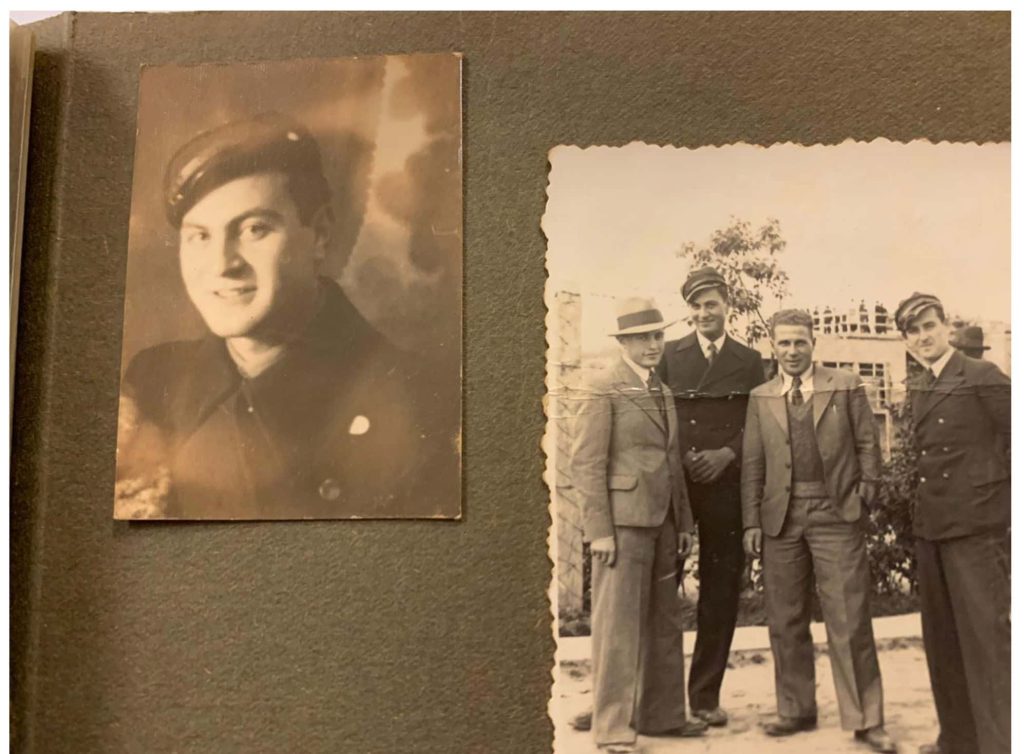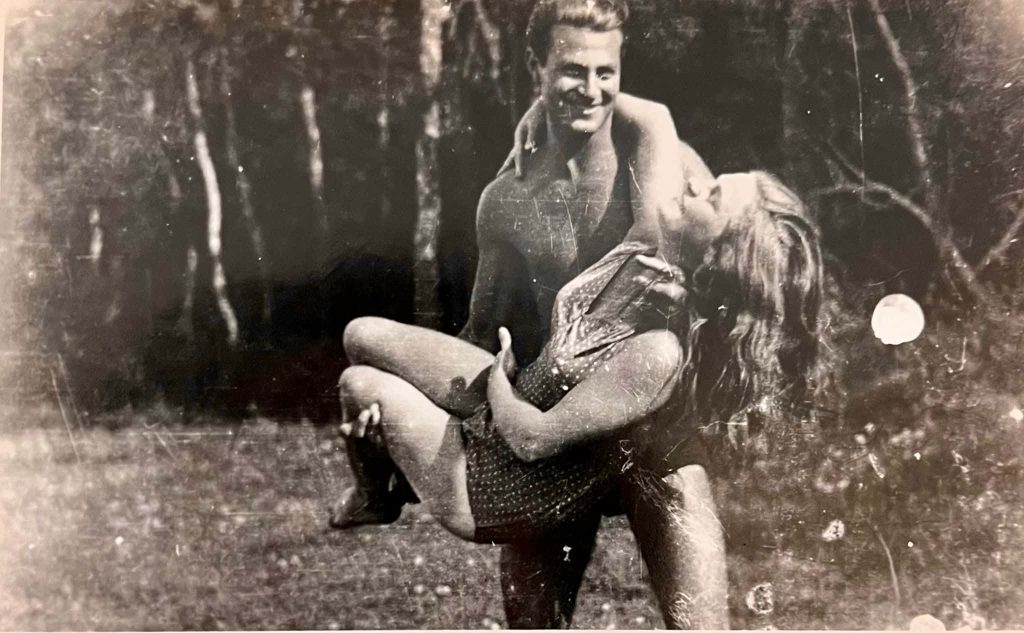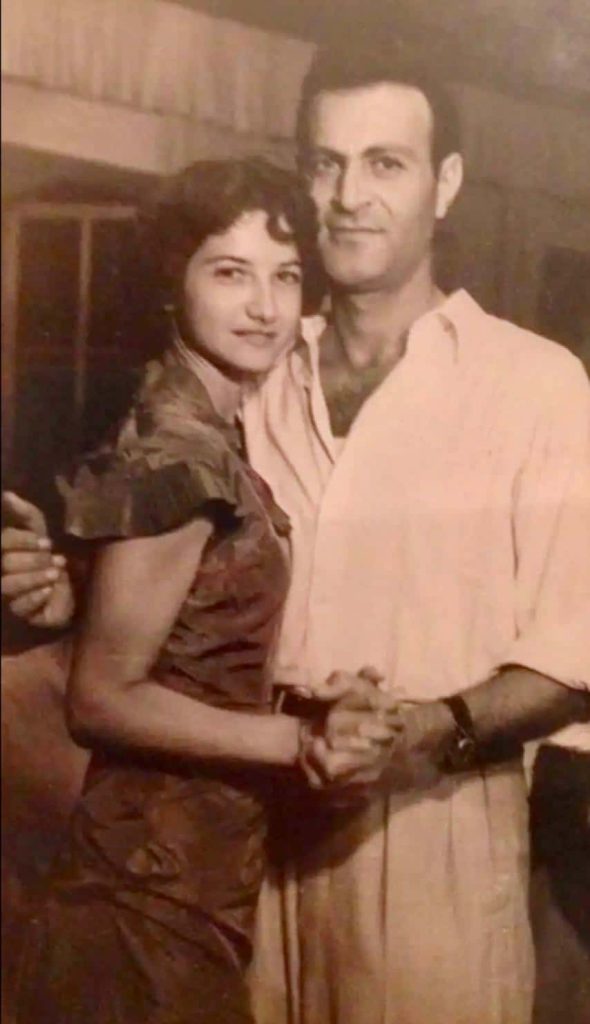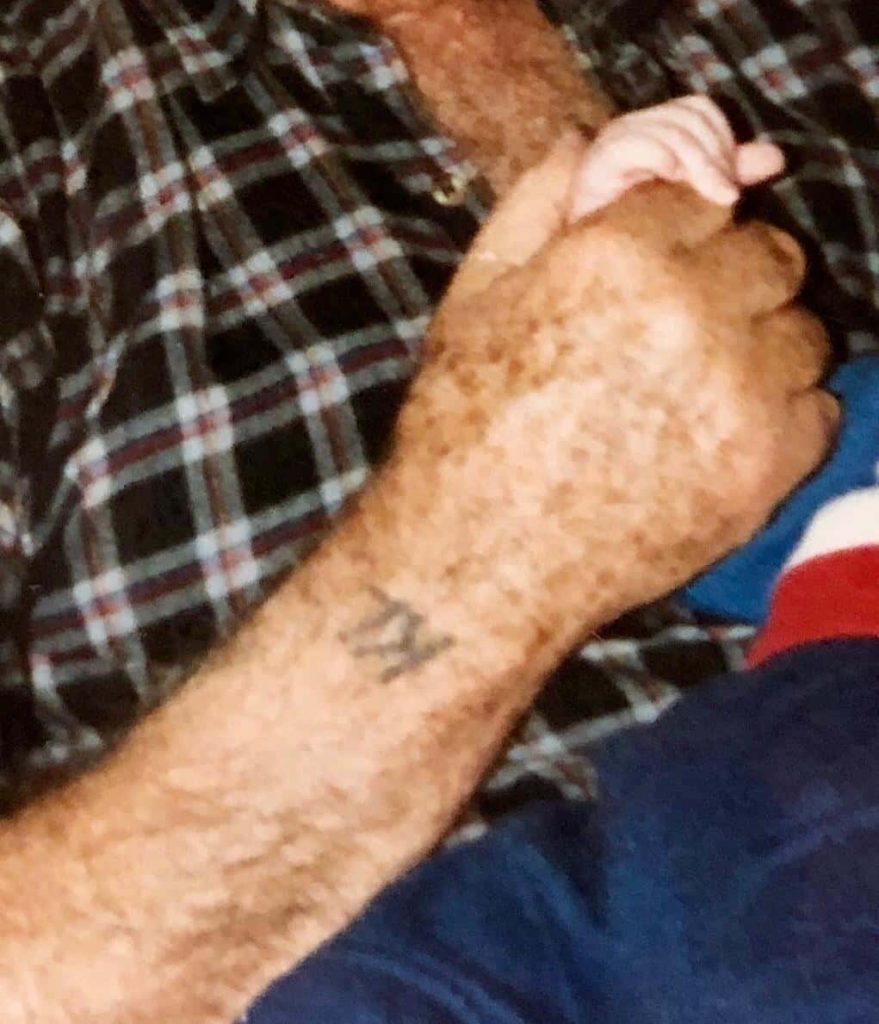Home » Zilberstein Chaim (Chaimek)
Chaim was the youngest child of Ephraim Fishel and Tauba (nee Stich). Ephraim was involved in Jewish organizations in Hrubieszow in the 1930’s including Keren Hayesod and he was on the board of directors of the town’s Jewish orphanage.
On his mother’s side, Chaim was the grandson of Menachem Mendel Stich and his wife Pesia. They were a traditional, religious Jewish family. Menachem was a very successful grain exporter.
On his father’s side, Chaim was the grandson of Noah and Rivka Zilberstein. Noah and Rivka were secular Jews. Noah worked in the timber export business and was an expert in evaluating trees. He travelled as far as Siberia for his business.
Chaim was extremely close with his older brother Moshe (Moniek) and his middle brother Abraham.
Antisemitism was very prevalent in Poland, so at his parents’ urging, Abraham left Poland in 1934 at the age of 20 and immigrated to Palestine. Moshe, upon graduating from Warsaw University, moved to the mountainous area of Chekochinek and worked there as a math teacher. In 1937, at the age of 25 he suffered a fatal heart attack. Subsequently Abraham returned to visit his family and tried to bring his parents and Chaim to Israel but was unsuccessful due to British immigration restrictions. Abraham returned to Palestine and never saw his parents again as they perished in the Holocaust.
Chaim was a good student and finished high school in Hrubieszow in 1934 or 1935 and began working with his father who had a successful grain exporting business. Chaim could not further his studies in Warsaw due to antisemitism. Chaim was a tall, athletic, handsome young man who was very popular with the girls his age. He also enjoyed swimming, fishing, ice skating, kayaking and playing volleyball.
In the fall of 1939, the German army invaded Poland. During this time, a Jewish ghetto was established in the town. Jews were forced to work as slave laborers in the surrounding area. During this time, Chaim fled to Russia. He returned to Hrubieszow to help his parents and family escape but was unsuccessful. By the fall of 1942, the Nazis decided to extinguish all Jews from Hrubieszow. Chaim’s father Ephraim was ordered to provide a list of Jews to the Gestapo. Ephraim refused to provide the list and was immediately executed. Chaim’s mother hid in the home of a Christian family but was eventually betrayed, and she was also executed in Hrubieszow. Thousands of Jews from Hrubieszow were shipped to the gas chambers of Sobibor, and many others were killed in Hrubieszow. Chaim and his wife Mirka fled and hid in the woods but they were captured by the S.S Mirka along with many other Jews from the town were put on a boat in the Bug River which the Nazis sunk, and everyone perished.
In the fall of 1942, Chaim and his friend Leibele Berenstein were put on a transport to the Budzyn slave labor camp. They were selected to be trained to work in airplane production for the German company Henkelwerk and stayed together throughout the remainder of the war. This was a very lucky selection for both, as they continued to work for and be protected by Henkelwerk throughout the war. Training took place in hangars that had been previously used by the Polish army in the Budzyn slave labor camp, followed by continued training in the Budzyn concentration camp and then in Mielec (a branch of Plaszow) where he was branded with the KL on his arm. KL was the sign for Mielec – Konzentrationslager means concentration labor. Training was done by Germans who had worked for Henkelwerk in Germany. They were taken from the front lines in the army to train and supervise the slave labor.
Work for Henkelwerk continued in hangars built underground in the salt mines of Wielickza which were in close proximity to Krakow. As the Russian army was approaching from the east, the Henkelwerk group was transported and spent time working in Flossenberg. After that, they were transported to Leitmeritz (near Theresienstadt), then passed through Dachau. Later they worked in Augsburg, followed by Leonburg (near Stuttgart) and last to Ganacker (a branch of Flossenberg in lower Bavaria) at the end of 1945.
As the Russian and American armies were closing in on the area of Ganacker, the S.S took the prisoners away from the camp. During one of the breaks, a group of Jewish laborers decided to try to escape. When they started marching, Chaim, Leibele, and others made a dash for the forest. Many were gunned down as the S.S opened up with machine gun fire. Chaim, Leibele, and a small group of survivors escaped and slept in a barn on a German family’s farm. They received food and water from the German couple in return for promising to tell the American soldiers that they helped them. The next day, American soldiers found Chaim and his group. Chaim worked with the American soldiers who were part of the OSS (Organization of Strategic Services which preceded the CIA) to help identify members of the S.S. Ultimately, this group transitioned from seeking to bring the Nazis to justice, to trying to find valuable assets among the Nazis – e.g. Rocket engineers and other scientists – and bring them back to the USA. As this transition occurred, Chaim stopped working with the OSS.
Throughout Chaim’s life after the war people asked him how he was able to survive the harsh conditions, scarcity of food, and the inhumane treatment in the Concentration Camps. He said that he survived not because of his physical strength, mental acuity or good health, but simply because of luck. Sometimes it was impossible for the prisoners to predict the behavior of their captors. There were times that Jews were killed because they were weak, while other times they were killed because they were physically fit.
On one occasion the Nazi guards divided the Jews in a Concentration Camp into two lines. No one knew the purpose of either line. A man came up to Chaim and asked if he would switch lines with him so that he could be in the same line as his brother. Chaim thought about the request and agreed to switch lines. The next day Chaim found out that everyone that was in the line that he switched out of was executed.
On another occasion, an S.S officer put a gun to Chaim’s head and asked if he wanted to live or die. Chaim, exhausted and depressed, said that he didn’t care if he lived or died. The S.S officer beat Chaim but did not shoot him. Chaim said that he was certain that he was going to be executed but unexplainably that did not occur.
Chaim and his group were temporarily living in Eggenfelden Germany after the war. Chaim decided to return to Hrubieszow via train to see if there was anything left for him. Chaim got as far as Prague where he met Henry Orenstein, a friend from his hometown. Henry convinced Chaim not to continue on this journey as he said there was nothing left in Hrubieszow for the Jews. Chaim decided to return to Eggenfelden. Unbeknownst to Chaim, approximately 10 days earlier, his brother Abraham (a major in the British army) began searching for him. He and his driver had a map of approximately 36 deportation camps in Germany. They travelled day and night for about a week to these camps and asked if anyone knew Chaim and where he might be living at that time. Finally, Abraham found Chaim in a house in Eggenfelden. Abraham was so tired that immediately after he saw Chaim he lay on the floor and slept all night. Chaim spent the entire night just looking at his brother and crying from joy.
Chaim suffered from various illnesses and infections of his gums from the hardships of his time as a slave laborer and in concentration camps. Abraham was told that Chaim needed penicillin to recover which was rare those days. Abraham took Chaim who was dressed in a British officer’s uniform, to a British military hospital for treatment. After several weeks his health improved, and he left the hospital.
Abraham was able to smuggle Chaim to Palestine via ship. After Abraham was released from the British army, he also returned to Palestine, and since then the two were inseparable. Ida and Chaim met on the beach in Tel Aviv, where Ida “borrowed” his beer as a way to flirt. She along with Abraham and other family and friends helped him to adjust and become “human” again following his experiences in the concentration camps. Chaim married Ida, and they had their first son Efram. Few years later, their second son – Ira was born in the U.S.A.
People often said that Chaim was unique in that he was “positive and hopeful” – He was a good person full of optimism before WW2 and somehow Regained and maintained those traits afterwards. After 18 years in Israel, Chaim was offered a job in the United States by his great friend Henry Orenstein.
Chaim and Ida settled in New Jersey and had a second son, Ira. They lived there together from 1962 until his death from cancer in 2008. He suffered many ailments late in life, yet remained cheerful. Although Chaim survived terrible events throughout the war, he was able to live a full and happy life. He was a very positive person, outgoing, curious to meet people, and charming. He and Ida enjoyed walking in the woods and finding peace in nature. Chaim loved his family, and he was a great father, grandfather, brother, uncle and a terrific human being. Chaim remained a lifelong friend of both Henry Orenstein and Leibele Berenstein. Abraham and Chaim’s bond was unbreakable even though they lived thousands of miles apart.
Throughout the years, Chaim very rarely discussed what he went through during the Holocaust. As a result, there are many details that we simply don’t know. Some things were simply too difficult for him to discuss. Chaim often said “Even though I’ve told you a few stories about what happened, you will never truly know what I went through”.



